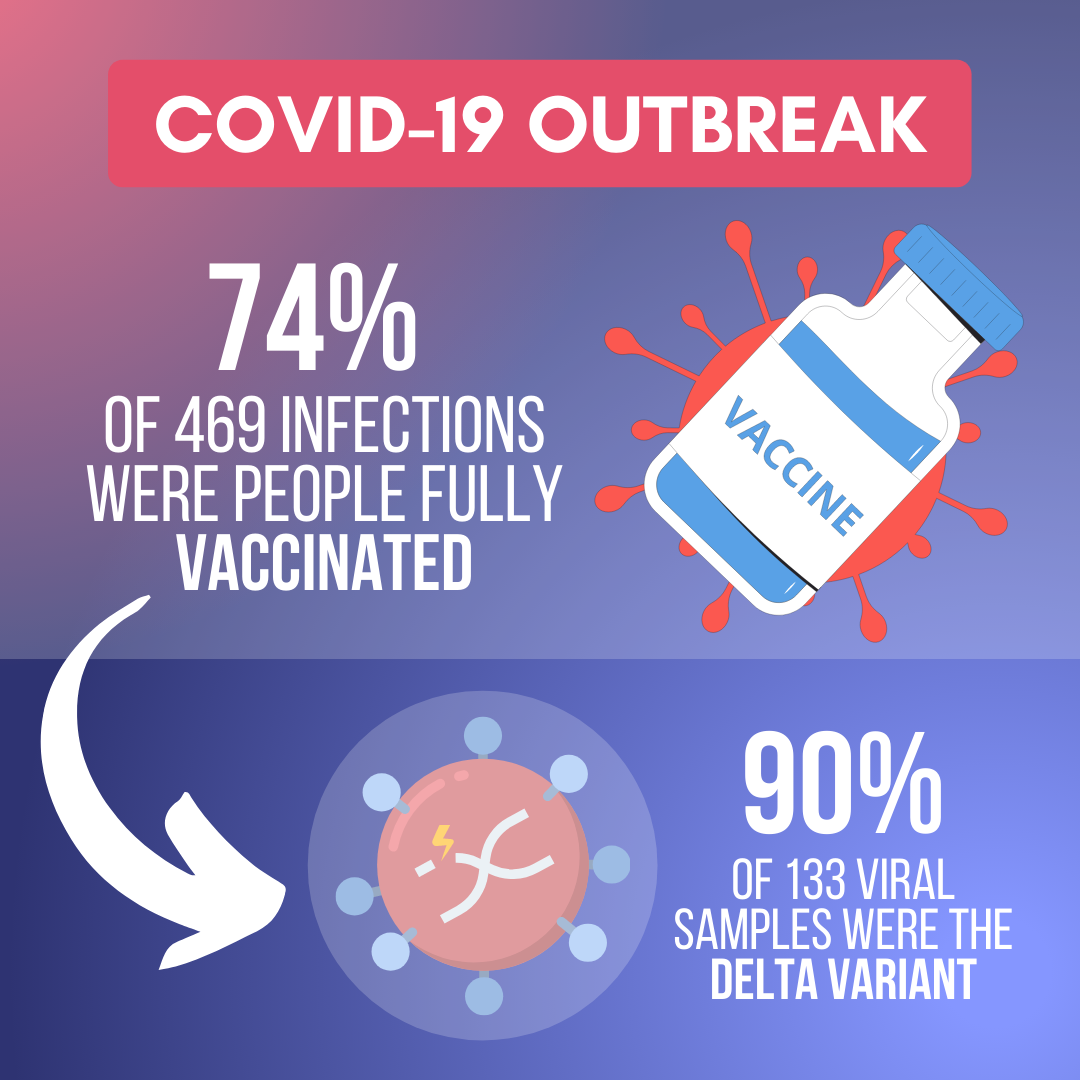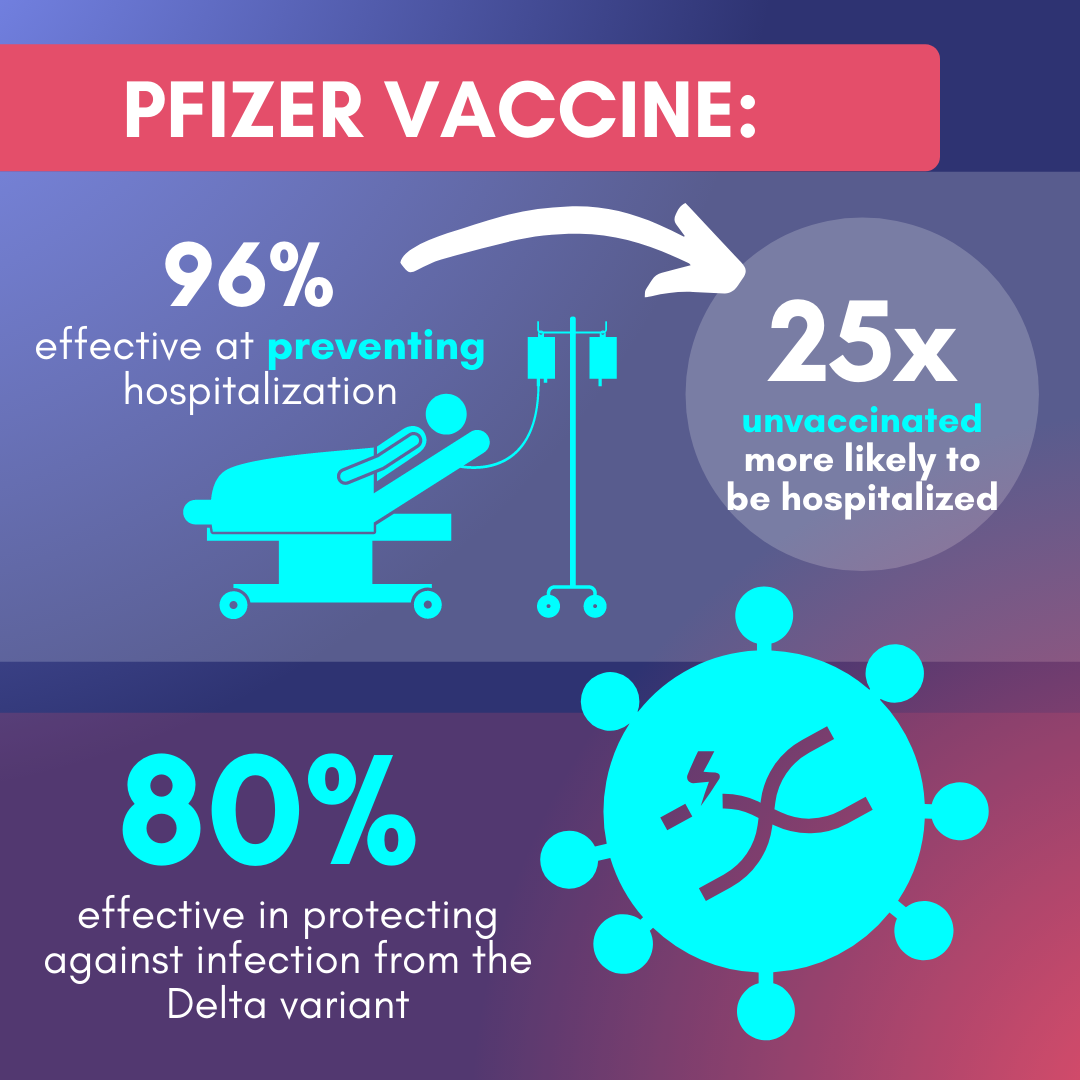News headlines have been recently dominated with reports about the rapid spread of the Delta strain of COVID-19. Many areas are seeing new waves of infection as the virus continues to mutate and present new obstacles for scientists and public health officials. Naturally, many people have a lot of questions about what this means for themselves, their family, and society at large.
Data made available by various studies, along with regular reporting from testing centers, provides some insight into the role that the Delta variant will play in our lives over the next several months. As we continue to try moving forward from the initial outbreak, it’s crucial that we keep an eye on the data surrounding the virus in order to determine the best course of action for both ourselves and others. Here are some of the main trends we’re seeing with the Delta virus so far.
The Delta virus can be transmitted by vaccinated individuals
One of the most alarming trends revealed by the data so far is the degree of breakthrough cases (vaccinated people testing positive) we’re seeing from the Delta strain. A recent study from the CDC detailing a massive COVID-19 outbreak in Provincetown, MA (where the population is mostly vaccinated), found that 74% of the 469 infections were in people who were fully vaccinated against the virus. Of the 133 viral samples genetically sequenced, a whopping 90% were identified as the Delta variant. Additionally, no significant difference was found in the viral load between vaccinated and unvaccinated individuals, indicating that the viral load is largely the same regardless of vaccine.
This new data was pivotal in the CDC’s decision to update its mask-wearing guidelines. Now that transmission of the virus is less deterred by the presence of a vaccination, public health specialists and scientists are recommending that people return to wearing masks when out in public. Many studies have found sufficient data pointing towards the efficacy of masks as a preemptive measure against COVID-19, and nothing suggests that the Delta strain is any different.

The Delta virus is more transmissible than prior variants
Data collected from testing facilities and research labs has shown that the Delta variant is far more transmissible compared to the original and prior strains of the virus. In just two months’ time, the Delta strain went from accounting for just 4% of all sequenced COVID-19 samples in India, to more than 70%, overwhelming health care systems and killing more than 400,000 people. A similar trend followed in other countries about a month later, with Australia being up 84% of sequenced cases (from 5%), South Africa up 72% of sequenced cases (from 5%), Russia up 95% of sequenced cases (from 0%), and the United Kingdom up 98% of sequenced cases (from 1%).
According to a recent study from China, the Delta variant can carry as much as 1,000 times the viral load of the Alpha and Beta strains. The same report also found that the time from exposure to the first positive PCR test was only 4 days (as opposed to 6). This indicates that not only does the Delta variant have a faster replication rate, but also a shorter incubation period, making the virus far easier to transmit. Another report from Singapore also found that individuals infected with the Delta variant remain infectious for significantly longer (at 18 versus 13 days). New estimates from a leaked internal CDC document echoes these claims, warning that the Delta variant is as contagious as chickenpox.

The Delta variant may be more virulent than prior strains
Preliminary data from various recent studies indicates that the Delta strain may be more dangerous than the Alpha variant. At the Dalla Lana School of Public Health in Toronto, Canada, researchers found that compared to prior strains of the COVID virus, the Delta variant posed a 120% increased risk of hospitalization, 287% increased risk of ICU admission, and 137% increased risk of death. In Singapore, another preliminary study found that the Delta variant nearly doubled the risk of pneumonia and the need for supplemental oxygen.
Although neither of these studies are peer-reviewed yet and therefor shouldn’t be used in public health decision making, their conclusions agree with data published by Public Health Scotland, which also found that the Delta variant doubles the risk of hospitalization compared to the Alpha variant.

Vaccines remain effective at reducing the severity of infection
Although the Delta variant has been leading a significant spike in breakthrough cases, vaccines continue to remain effective in preventing hospitalizations and deaths. Alex Morse, Provincetown’s town manager, testified to the effectiveness on the vaccines on Twitter. “The vaccines are working,” he Tweeted. “Of the 900 cases related to the Provincetown cluster, there have been no deaths, 7 hospitalizations, and the symptoms are largely mild.”
A new study from Public Health England found that the Pfizer vaccine was 96% effective at preventing hospitalization, making unvaccinated individuals 25 times as likely of being hospitalized as those who have received the vaccine. Additionally, despite the role that vaccinated individuals are playing in breakout cases, the same study found that the vaccine was approximately 80 percent effective in protecting against infection from the Delta variant.

Conclusion
It’s critical that we continue to monitor emerging data trends related to the Delta virus (and other variants) as we navigate the next few months. Continuous testing and reporting will be key to any long-term solutions as we attempt to move forward from COVID-19. To learn more about data’s role in addressing the recent pandemic, check out our white paper Population Health and Data Reporting Strategies in the Era of COVID-19.
- How Spirits Brands Can Improve Brand Loyalty with Data Analytics - January 30, 2024
- The Collapse of Herbl, and How Other Cannabis Distributors Can Avoid the Same Fate - January 24, 2024
- Top 5 Blog Posts of 2023 - December 28, 2023




